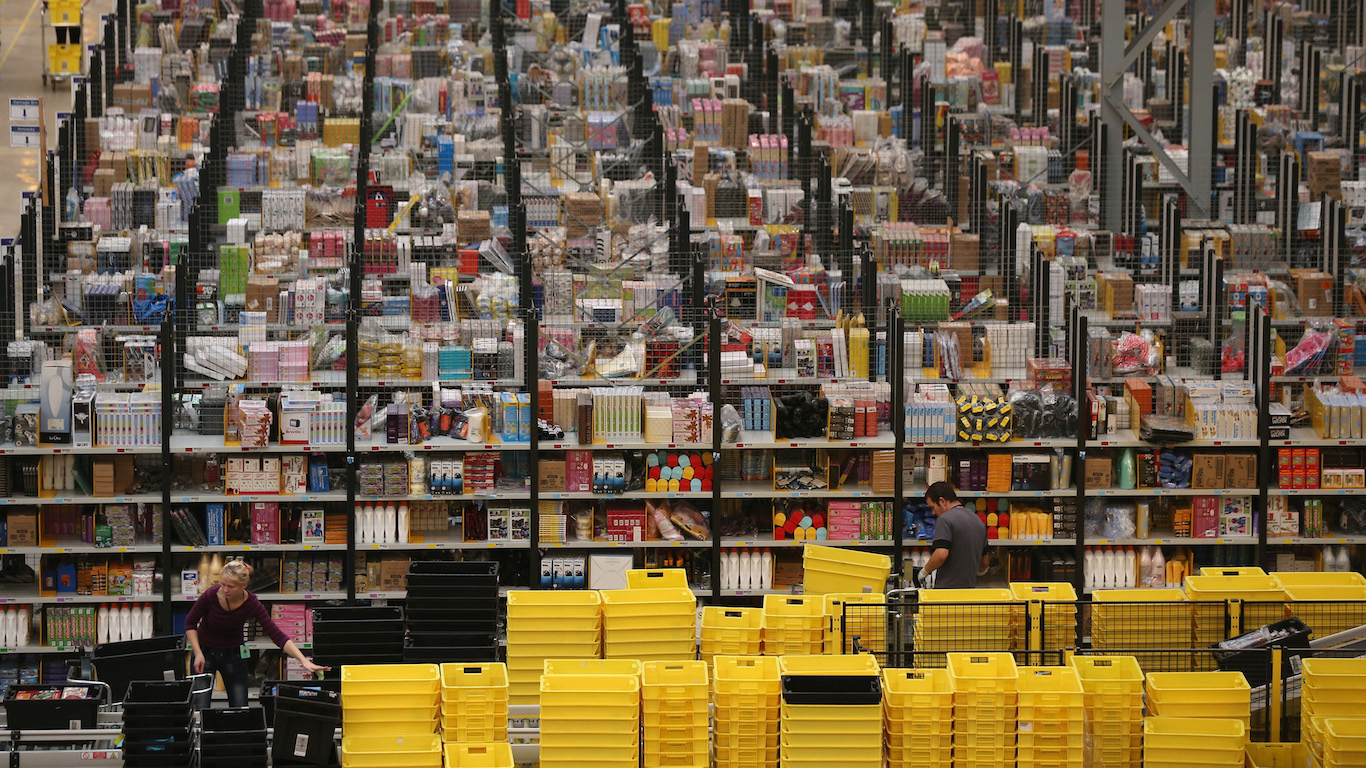Retail
Is Amazon Finally Getting Serious About Counterfeit Goods?

Published:
Last Updated:

When Amazon.com Inc. (NASDAQ: AMZN) on Thursday unveiled its new anti-counterfeiting initiative, “Project Zero,” the company said the program would help brands “drive counterfeits to zero” by giving them the tools to combat fakes. The announcement came complete with testimonials from several brands who were early users of the program.
What Amazon has done is pass the responsibility for removing fakes from its websites back to the brands. The online retailer said it is providing brands with automated scanning protection that “proactively stops 100 times more suspected counterfeit products” than its current way of reacting to reports of fakes.
Once an item has been identified as a possible fake, the brand has access to a tool it can use directly on Amazon’s websites to remove the fake. Amazon is also offering what it calls a product serialization scheme that uses a unique barcode to scan and authenticate every one of a brand’s products purchased from Amazon.
So far Project Zero is available only by invitation, and Amazon is building a waitlist for future participants.
This all sounds good for sellers of branded goods. Ken Minn, CEO at ThunderWorks, a maker of branded products to calm scared and nervous pets, commented:
When we were offered the opportunity to enroll in Amazon Project Zero, we jumped on it. Every unit we sell through Amazon has a unique, serialized barcode, and our counterfeit problem has nearly disappeared in the United States.
But how will Project Zero work for consumers? Consumer watchdog The Counterfeit Report is skeptical:
All of the self-congratulatory back-patting cannot hide the fact that brand enforcers know that Amazon’s anti-counterfeiting practices are nothing more than lipstick on a pig; ineffective, cumbersome and dysfunctional. The reality is that counterfeit notifications to Amazon can languish for weeks or be flat out denied. Products that are counterfeit on one Amazon website may be allowed to remain on any of Amazon’s 13 other websites, even though complaints include all Amazon websites….
That may be a bit harsh, but if someone buys a counterfeit item from one of Amazon’s marketplace sellers, that buyer is often stuck with it unless the seller agrees to a refund.
Amazon claims that Project Zero will scan some 5 billion item updates every day, but only brands enrolled in Project Zero will get the chance to remove fakes, and there is no guarantee that customers who purchased fakes will get a refund from the marketplace seller. Is Amazon willing to refund a customer’s purchase price and then collect from the marketplace seller? Will Amazon refund its cut of the bogus sales to its marketplace seller? Don’t count on either one of those things happening.
Many luxury and high-visibility brands have so far avoided Amazon largely because they don’t want to compete with fake goods sold under their brand names. Nike has its own Amazon store, and all genuine Nike gear is sold at that store. Small firms like ThunderWorks may not be able to afford their own stores, so Project Zero is better than the status quo.
Credit card companies are at war, handing out free rewards and benefits to win the best customers. A good cash back card can be worth thousands of dollars a year in free money, not to mention other perks like travel, insurance, and access to fancy lounges. See our top picks for the best credit cards today. You won’t want to miss some of these offers.
Flywheel Publishing has partnered with CardRatings for our coverage of credit card products. Flywheel Publishing and CardRatings may receive a commission from card issuers.
Thank you for reading! Have some feedback for us?
Contact the 24/7 Wall St. editorial team.